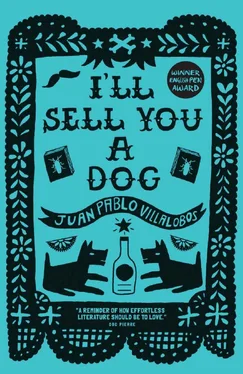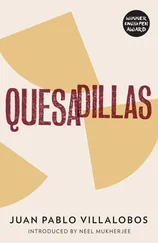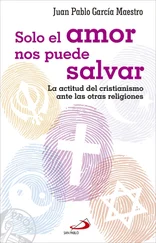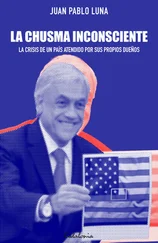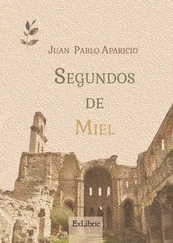‘Where to?’ I replied.
‘People are gathering in the Plaza de la Ciudadela.’
‘I’m too old for that sort of thing, Juliette , I’m going to have a beer.’
She gave a happy laugh and for a moment it seemed to me that the Revolution for her was one big carnival where she would be queen, but she was laughing about something else.
‘You really are a pervert, Teo,’ she said.
‘Why?’
‘What do you mean, why?’ she said, looking down at my groin, ‘just look, you’ve got your trousers wet already.’
I walked over to the bar on the corner, went in and headed straight for the toilets to scrub at my clothes with a bit of wet loo roll. Once I’d achieved the effect of making it look like I’d wet myself, I went and asked for a beer and a tequila then sat down in time to see Mao, who was dragging the suitcase the Lost Times had gone away and come back in, swerving madly over towards my table.
‘Where’s Dorotea?’ he shouted.
‘You’re missing the Revolution, kiddo,’ I told him.
‘Tell me where she is!’
‘You know where — she’s with Villem.’
‘I’m gonna smash that little Mormon’s face in!’
‘Relax, Mao, remember what we talked about the other day.’
He collapsed onto the seat opposite me, defeated, but starting to delude himself that this defeat was not, in fact, the one that mattered. It made me want to pat him on the back.
‘Get me a beer, will you?’ he asked.
I yelled to the barman to bring us another beer and a tequila each. The drinks arrived and Mao took a long swig of beer.
‘We let the dog go,’ he said.
‘I told you, I don’t want to know anything about that; the less I know, the better. The salonists are free for the time being, let’s not make matters any more complicated.’
‘I just want you to know we aborted the operation.’
‘Fine,’ I said.
I pointed with my chin at the suitcase we’d used for transporting the Lost Times.
‘Did you get them?’
‘I had to buy them. The first lot I just took out of the library and made them disappear. I would’ve had to trek round all the humanities departments in the country to get this many copies. Next time, let me know in advance.’
‘How much?’
‘One thousand one hundred pesos.’
‘What?’
‘A hundred each. But don’t worry, Grandpa, I took the money out of the operation’s budget.’
‘That’s good, because I wasn’t going to pay you!’
He bent down towards the suitcase and started to unzip it, saying: ‘I brought you something else, too.’
‘The complete works of Adorno?’
‘The elixir of Tlalnepantla,’ he said, placing a bottle of whisky on the table.
‘How much?’
‘Fifty pesos.’
‘Hey, I used to get it for thirty.’
‘There’s a twenty-peso anarchist tax.’
He carried on drinking his beer and tequila in silence, getting ready to turn the page, or to go back, as is still possible when one is young, to a time before Dorotea from where he could nudge history towards a different course. He emerged from his reverie with a dreamy look on his face.
‘Did you hear about the plane?’ he asked.
I told him I hadn’t, and he passed me his phone so I could read the news in the paper: a terrorist cell had hijacked a plane full of stockbrokers travelling from London to New York using five copies of the annotated edition — all one thousand and forty hardbacked pages of it — of James Joyce’s Ulysses .
‘Our methods are spreading.’
He finished his drinks and said goodbye, telling me his comrades were waiting for him in La Plaza de la Ciudadela. I shook his hand and, before he left, I said:
‘How can I reach you to let you know when I’ve finished the whisky?’
He wrote a mobile number on a serviette.
‘When you call,’ he said, ‘ask for Juan.’
‘You’re called Juan?’
‘No, that’s the code.’
I ordered another beer and another tequila, then another, and another, until, just as the bar was about to close, Willem appeared with a smile so wide it made me realise I’d never noticed how huge his teeth were before.
‘Well?’ I enquired.
‘ Ah’m in love,’ he replied.
‘Tell me you used a condom.’
‘Condoms are a sin.’
‘Help me take this suitcase up to my apartment. And you’re going to have to wash my sheets.’
They had to send the diggers into the rubble of the cardiology ward: they hadn’t rescued my mother, they hadn’t rescued my sister. Nor had they found their bodies, as with the thousands of others across the city. People began organising symbolic funerals, without bodies, without the dead. What was being buried, if anything, and not even this, was memories, nothing more.
A few weeks earlier, in one of her customary outbursts of hypochondria, my mother had given us instructions to bury her in the family tomb, in the Dolores public cemetery, half a mile from the Rotunda of Illustrious Persons. With her parents and siblings dead, all I had to do was get a letter of agreement from a few distant cousins whom we never saw and who didn’t even bother coming to see her buried.
In preparation for the ceremony, I gave a nylon stocking to Eighty-Three, an incredibly long stocking, as long as my sister’s legs, a stocking she would never wear again, and the dog’s bones — inside a pine coffin with a little gold plaque with the names of my mother and my sister carved onto it — ended up on top of my Grandfather’s, who had died in the Revolution, killed by a stray bullet.
The salon finished reading the first volume of In Search of Lost Time and to celebrate, they organised a cocktail party with champagne from Zacatecas and savoury crackers spread with tuna mayonnaise.
When I crossed the lobby on my way to the bar and they invited me to stay, I called out:
‘All this sophistication plays havoc with my digestion!’
And just when it seemed that nothing else could happen, what with all the things that had happened, it turned out that the new delivery boy had been telling the truth. We only found out the night Hipólita tripped over the lost tin of jalapeño peppers on the first-floor landing. The management committee declared the boy innocent of theft and guilty of murder in multiple degrees: Hipólita didn’t survive the fall. The salonists said: ‘It’s the supermarket’s fault for having hired that negligent delivery boy.’
‘It’s the delivery boy’s fault for not realising he’d dropped the tin in the corridor.’
‘It’s the management committee’s fault for not properly maintaining the building.’
‘It’s the doctor’s fault for giving her such a strong painkiller: it made her dizzy.’
‘It’s the plaster cast’s fault: if she’d been able to put her hands down she wouldn’t have hit her head.’
‘It’s her husband’s fault: if he hadn’t cheated on her she wouldn’t have had to leave Veracruz and end up in this building.’
‘It’s the champagne’s fault: it was too strong.’
‘It’s Hipólita’s fault for having drunk three glasses of it.’
I tried to join in: ‘It’s Proust’s fault, for not making Lost Time shorter!’
At A&E they told us she was stuffed full of painkillers. At least she hadn’t felt anything. There was no funeral and no burial, because her children had the body cremated and took the ashes to Veracruz. They said they were going to spread them at the foot of the Pico de Orizaba volcano. Instead of a funeral procession, the whole salon organised a protest march to the supermarket. Juliet, who was a soppy old thing, presented them with a hundred pounds of tomatoes. When I saw them all troop by from my balcony I called out: ‘There’s a bookshop in the Alliance Française on Calle Sócrates!’
Читать дальше
